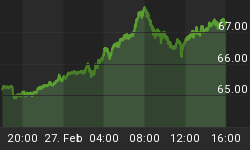China’s biggest oil and gas producer PetroChina—the first company in the world to reach a US$1-trillion valuation more than ten years ago—is now so cheap that it is worth less than the value of its oil and gas reserves.
PetroChina is listed in Hong Kong, Shanghai, and New York. It has been trading in Hong Kong and New York since 2000, a year after its parent, China National Petroleum Corporation (CNPC), created it by transferring most of the upstream assets to the new company.
PetroChina’s H-shares traded in Hong Kong give the company a current enterprise value of the equivalent of US$169 billion, while analysts at Bernstein have estimated that its proven oil and gas reserves in the ground are worth US$208.7 billion, Bloomberg reports.
Typically, no energy company should ever trade below the value of its reserves in the ground, because a premium to the resources value implies that a firm has growth potential to develop those resources, Bernstein told Bloomberg.
PetroChina, however, is currently the exception to the rule, as its enterprise value/reserves value ratio is now below 1—at 0.801, the lowest among 25 large oil and gas companies around the world that Bernstein tracks. PetroChina is also the only one of those 25 firms with a lower enterprise value than the value of its reserves.
“There is no valuation method that can validate the current share price,”
Jefferies Group LLC analyst Laban Yu, told Bloomberg, commenting on PetroChina’s share performance.
PetroChina’s share price has suffered a lot over the past ten years, and it has lost much more shareholder value than those of other oil giants because, being ultimately owned by the Chinese government, PetroChina prioritizes Chinese energy policies to rewarding shareholders.
After seven years of trading in Hong Kong and New York, PetroChina also debuted on the Shanghai stock exchange in November 2007, becoming the first US$1-trillion company in the world.
Ten years later, in November 2017, PetroChina’s Shanghai-listed shares had dropped by a staggering 82 percent since the IPO, wiping out shareholder value of US$800 billion, Bloomberg calculated. Related: VCs Are Pouring Billions Into Cannabis As Legalization Looms
Since the end of 2007, several factors—domestic and international—have combined to contribute to the biggest individual stock slump in history. On PetroChina’s first day of trading on the Shanghai Stock Exchange on November 5, 2007, its share price almost tripled its IPO price and took its market value beyond the US$1-trillion mark, the first time a company had been valued at more than US$1 trillion.
But back then, cracks in the financial system had already started to emerge; the subprime mortgages market collapsed a few months later, Lehman Brothers filed for bankruptcy in September 2008, and the global financial crisis was in full swing. The 2014 oil price crash further wiped out a lot of the stock prices of all the energy companies in the world.
At the end of 2017, analysts’ price targets on PetroChina’s shares traded in Hong Kong had suggested that the stock had room to gain 31 percent in the following 12 months.
But so far in 2019, PetroChina’s shares in Hong Kong have lost 14 percent, while the share prices of Exxon, Chevron, and Shell have risen by between 12 and 14 percent, according to stock exchange data.
While peers in other countries have started to see a recovery in their share performance with increased attention to shareholder returns, China’s energy giant has yet to show shareholders that it cares about them at all.
“Investors have all but given up on the company,” Bernstein analyst Neil Beveridge said in a note last month, carried by Bloomberg.
PetroChina could revive its share price performance by cutting the money-losing business of importing natural gas at higher prices than the resale price, regulated by the state, and cut in half its excessively high workforce, according to Bernstein.
While these two measures would definitely be difficult—if not impossible—to implement because of the state ownership, PetroChina could see some upside in performance thanks to China’s plans to reform parts of its energy industry.
China plans to create a state-held oil and gas pipeline company, combining the midstream assets of the national firms in a bid to allow energy companies to focus on boosting exploration and production. Beijing will also remove the joint venture requirement for foreign companies wanting to enter its oil and gas industry as it moves to open up a range of industries.
According to analysts, PetroChina could benefit from these reforms as they could unlock the value of various upstream and midstream assets the company currently holds.
By Tsvetana Paraskova for Oilprice.com
More Top Reads From Safehaven.com:
















